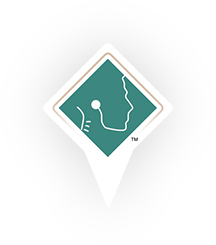
Understanding What Causes TMJ and How You Can Find Relief
The temporomandibular joint (TMJ) plays a crucial role in everyday activities such as talking, chewing, and yawning. However, when this joint becomes problematic, it can lead to significant discomfort and a range of related issues. TMJ disorders are common but often misunderstood.
What is TMJ?
TMJ refers to the temporomandibular joint, which connects your jawbone to your skull. This joint allows your jaw to move up, down, and side-to-side, enabling you to perform essential functions like speaking and eating. TMJ disorders, or TMD, occur when there are problems with the muscles, ligaments, or bones that control the joint. These disorders can cause pain, restricted movement, and a variety of other uncomfortable symptoms.
Common Causes of TMJ Disorders
TMJ disorders can be caused by a combination of factors, and often, it can be challenging to pinpoint a single cause. Some common contributors include:
• Teeth Grinding or Clenching (Bruxism): This habit places excessive pressure on the TMJ, leading to inflammation and pain.
• Jaw Misalignment: An uneven bite or malocclusion can stress the joint, leading to dysfunction.
• Injury: Trauma to the jaw or head can damage the joint or surrounding muscles, resulting in TMJ disorders.
• Arthritis: Degenerative joint diseases like osteoarthritis can affect the TMJ, leading to pain and stiffness.
• Stress: High levels of stress can cause people to clench their jaw or grind their teeth, exacerbating TMJ symptoms.
Recognizing the Symptoms of TMJ Disorders
TMJ disorders often present a range of symptoms that can vary in intensity. If you’re experiencing any of the following signs, you may have a TMJ disorder:
• Pain or tenderness in the jaw
• Clicking, popping, or grating sounds when opening or closing the mouth
• Difficulty chewing or discomfort while eating
• Headaches, earaches, or neck pain
• Locking of the jaw, making it difficult to open or close your mouth
Finding Relief: Treatment Options
At TMJ & Sleep Therapy Centre of San Diego, we offer a comprehensive approach to treating TMJ disorders, ensuring that you receive customized care for lasting relief. Our treatments target both the root causes and the symptoms of TMJ disorders.
1. Orthopedic Appliance Therapy
Custom-designed oral appliances, such as splints or mouthguards, can help alleviate TMJ pain by repositioning the jaw and reducing pressure on the joint. These appliances are often worn during sleep and are a non-invasive solution to promote healing and proper alignment.
2. Nutritional Counseling
Diet plays a crucial role in reducing inflammation and promoting joint health. Our experts at TMJ & Sleep Therapy Centre of San Diego offer personalized nutritional guidance to help you avoid foods that can trigger inflammation and incorporate nutrients that support joint function. Anti-inflammatory diets rich in omega-3 fatty acids, antioxidants, and supplements can contribute to pain relief and overall wellness.
3. Laser Therapy
Laser therapy is an advanced, non-invasive treatment option for TMJ disorders that helps reduce pain, inflammation, and promotes tissue healing. By using low-level laser technology, the therapy works by stimulating the body's natural healing processes, enhancing blood circulation, and reducing muscle tension around the temporomandibular joint. This targeted approach not only accelerates the recovery of damaged tissues but also provides relief from the chronic pain associated with TMJ.
4. Phonophoresis
Phonophoresis is a therapeutic technique used in the treatment of TMJ disorders that combines ultrasound technology with topical medications to enhance their absorption and effectiveness. During the procedure, an anti-inflammatory or analgesic medication is applied to the affected area, and ultrasound waves are used to help the medication penetrate deeper into the tissues surrounding the temporomandibular joint. This method can significantly reduce pain, inflammation, and muscle tension, making it a valuable option for individuals experiencing discomfort from TMJ. Phonophoresis is non-invasive and can be part of a broader TMJ treatment plan, offering an additional layer of relief while promoting healing of the joint and surrounding muscles.
Comprehensive Care at TMJ & Sleep Therapy Centre of San Diego
At TMJ & Sleep Therapy Centre of San Diego, we focus on providing comprehensive, personalized care for every patient. Our multidisciplinary approach includes diagnosis, treatment planning, and long-term management of TMJ disorders. By combining orthopedic appliance therapy, nutritional counseling, and physical medicine treatments, we aim to address the root causes of your TMJ disorder, not just the symptoms.
If you’re struggling with TMJ pain or discomfort, contact TMJ & Sleep Therapy Centre of San Diego today to schedule a consultation and learn more about how we can help you live pain-free. Visit our office in La Mesa, California, or call (619) 762-4379 to book an appointment today.

 Patient Portal
Patient Portal 










